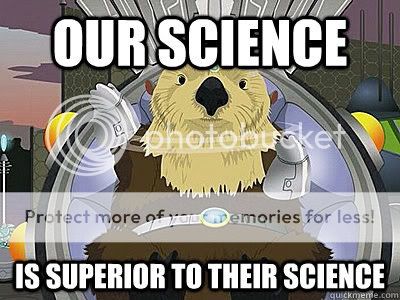greenfairy
philosopher wood nymph
- Joined
- May 25, 2012
- Messages
- 4,024
- MBTI Type
- iNfj
- Enneagram
- 6w5
- Instinctual Variant
- sx/sp
I don't see how you can have a "scientific bias". What would this entail? From what I've seen, when people say someone has a "scientific bias", they mean that he doesn't softheadedly entertain every vacuous piece of conjecture and sophistry he encounters.
This means clinging to the presumption that the scientific body of knowledge is all the knowledge that exists, or that the scientific method of observation is the only method of attaining knowledge of reality. There is another way, that of experience and relationship. It yields a different sort of knowledge, that of understanding (as opposed to certainty). It is personal integration of truth. Also, there is plenty to be known which we do not yet have the capability to observe with technology. Having unquestioned faith in and religious adherence to science is to reject the idea that humans have access to only a small portion of reality at any given time. We can't know what lies in the past or the future, for example. We don't know what things are like on the other side of the galaxy. We don't even know what thoughts are in other people's minds.


